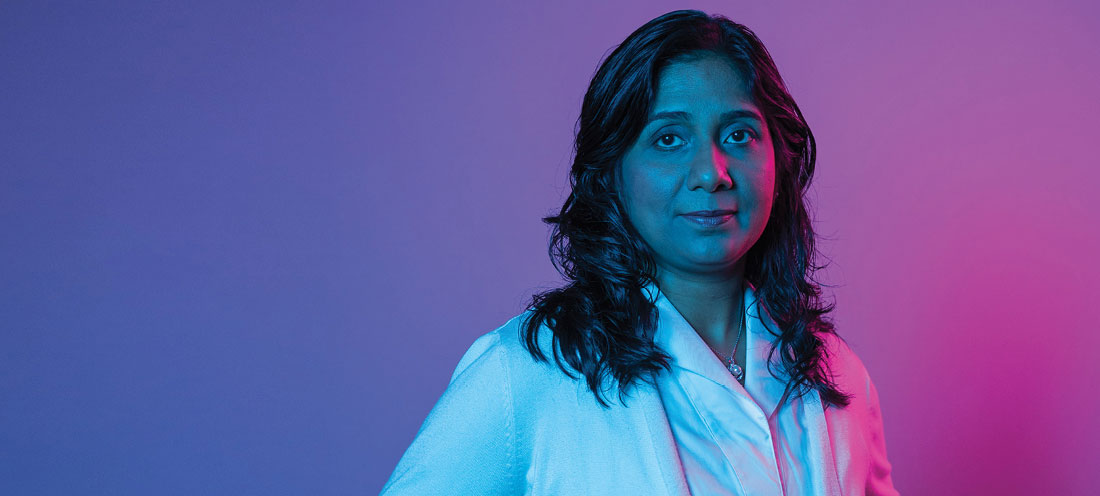Anupriya Agarwal, PhD, has always preferred to blaze her own trail. Growing up in a small town in northern India, where it was not common for women to pursue higher education, she aspired for more. “I was inspired by all the female scientists and researchers I learned about in school,” she said.
Agarwal chose to pursue the field of medicine. “I had one of those toy doctor sets for kids, and I played with it for as long as I can remember, so medicine was a pretty obvious choice,” she laughed.
After completing her undergraduate studies, Agarwal went on to receive a master’s degree and PhD in microbiology. Then she got married and got on a plane to join her husband, who was already working in the United States. It was a rough transition at first.
“I didn’t have a work visa or a driver’s license yet, so those first few months I just stayed home and read,” she said. Having lost a beloved uncle to cancer, Agarwal immersed herself in articles about cancer and soon found herself volunteering at a medical college that was doing breast cancer research.
“Having seen people suffering from cancer so closely, I wanted to make a difference in people’s lives by finding new treatments, and I realized research was a way I could do it,” she explained.
Plenty of research jobs presented themselves, but Agarwal was drawn to the Knight Cancer Institute. “I knew I didn’t want to work in a corporate lab following someone else’s research goals,” she said. “I was much more interested in pursuing my own ideas, and I’ve been able to do that here.”
“Persistent and collaborative efforts are required when it comes down to curing cancer and improving the quality of life for every individual.”
For Agarwal, those ideas are focused on discovering which genetic drivers affect the growth of leukemia cells at the earliest stages of disease. The implications are huge — because figuring out what happens to these cells at the pre-cancer stage could lead to early detection or even prevention.
“For those who are diagnosed with acute myeloid leukemia, a form of leukemia that is notoriously difficult to treat, the ability to catch it sooner would make the treatment window so much bigger,” she explained.
Not only are the implications enormous, so are the research expenses — which is why Agarwal relies heavily on the generosity of donors. “For every dollar that’s given, I feel a huge responsibility to pay it back through the work that I do,” she said. “It doesn’t feel like work; it’s more like a calling.”

